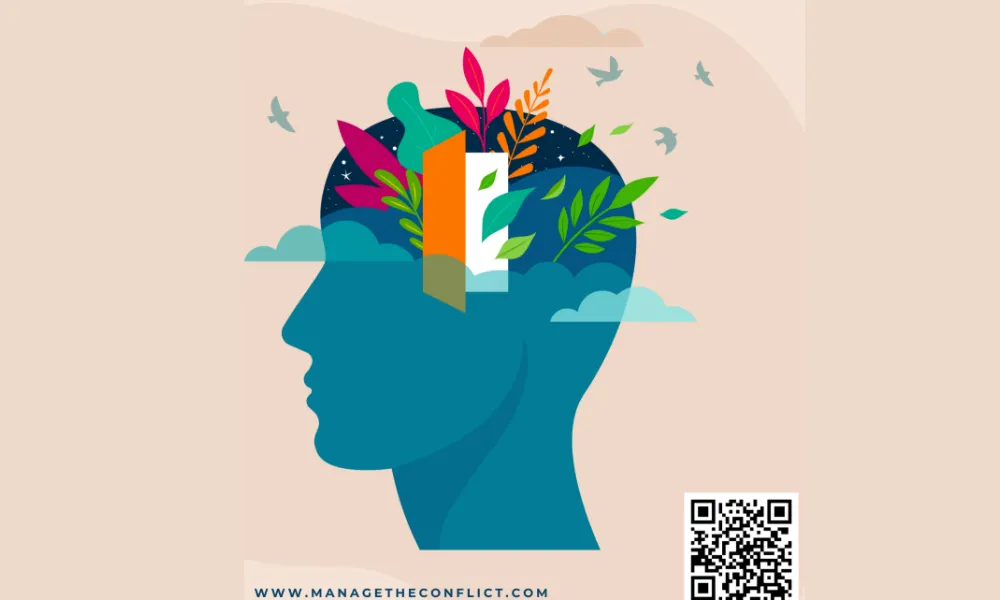
Conflict and psychosocial wellbeing
How workplace conflict impacts psychosocial wellbeing
Conflict is part of business. Conflicts can be positive as it brings about new creative thinking, dynamic enterprise and energises the team. When conflicts impact the workplace negatively, this is also another part of business. However, the impacts of negative conflicts on psychosocial well-being are deep and far-reaching. Conflict is emotional. Without emotions, there’d be only processes, no richness of ideas and the workplace would be dull with automatons. When emotions get mixed up with conflicts it affects how employees feel, perform, and their overall mental health.
Here are some psychosocial hazards that negatively impact staff and organisations if conflicts are ignored or left unmanaged:
Increased Stress – Stress itself is not an injury or illness. But when an employee is constantly stressed, or long duration or under extreme stress, then this individual’s mental health will suffer harm. Constant tension and disagreements can lead to chronic stress, which not only affects mental health but also has physical consequences like headaches, high blood pressure, sleep disorders and even more extensive illnesses.
Burnout and emotional exhaustion – Burnout is a loaded word which has extensive psychosocial implications to an individual, a team and for an organisation’s capacity. Prolonged exposure to unresolved conflict can lead to burnout. Burnout could leave employees feeling drained, demotivated, unable to cope with their workload and hence lead to absenteeism.
Decreased job satisfaction – Conflict reduces job satisfaction, leading to disengagement, higher absenteeism, and increased turnover.
Toxic workplace – We spend up to 38 hours or more with our colleagues whether 2 days/week or more. We want our interactions and relationships to be positive and dynamic. Negative interpersonal relationships at the workplace, bullying, or unfair treatment as a result of unresolved conflict can lead to a toxic work culture, employees feel unsafe or and feel their contribution is not valued.
How can organisations mitigate the risks of psychosocial hazards at the workplace?
If you value your employees and want to protect their psychosocial well-being, it’s essential to prioritize proactive conflict resolution strategies. Below are some tips:
Open communication – Easier said than done. So, have processes in place to create a culture where employees feel safe to voice their concerns without fear of retaliation. Psychological safety reduces anxiety and fosters collaboration.
Invest in conflict management training – Because emotions are what heightens escalation of conflicts, it is important that you provide directors, managers and teams with the necessary tools to view conflicts as a natural part of doing business and that address conflicts early and effectively is the way to change the behaviour and enhance the culture. Emotional Intelligence plays a critical role in fostering these skills and preventing issues from escalating.
Work-life balance – Flexibility like WFH and job share and other resources such as gym memberships, Spa discounts etc. can help employees to look after themselves psysically, take care of the mental health and lower stress levels.
Provide Mental Health Resources – The majority of organisations if not all, offer employee assistance programs (EAP) or some form of access to counselling or mental health days. Any of these can go a long way to support employees in times of stress.
As a Conflict Management Masterclass facilitator, I understand and experience how Emotional Intelligence (EI) enhances and benefits and empowers leaders and employees with the subtle skills to navigate difficult situations with empathy, self-awareness, and emotional regulation. EI is a powerful tool when handling conflict and promoting psychosocial well-being, however it is not the only tool. Organisations also need to put in place good strategies and robust processes to safeguard their employees’ wellbeing and not expose them to psychosocial hazards. Such exposure is detrimental to the individual, to the workforce, to capacity management and to ongoing prosperity of the organisation.
